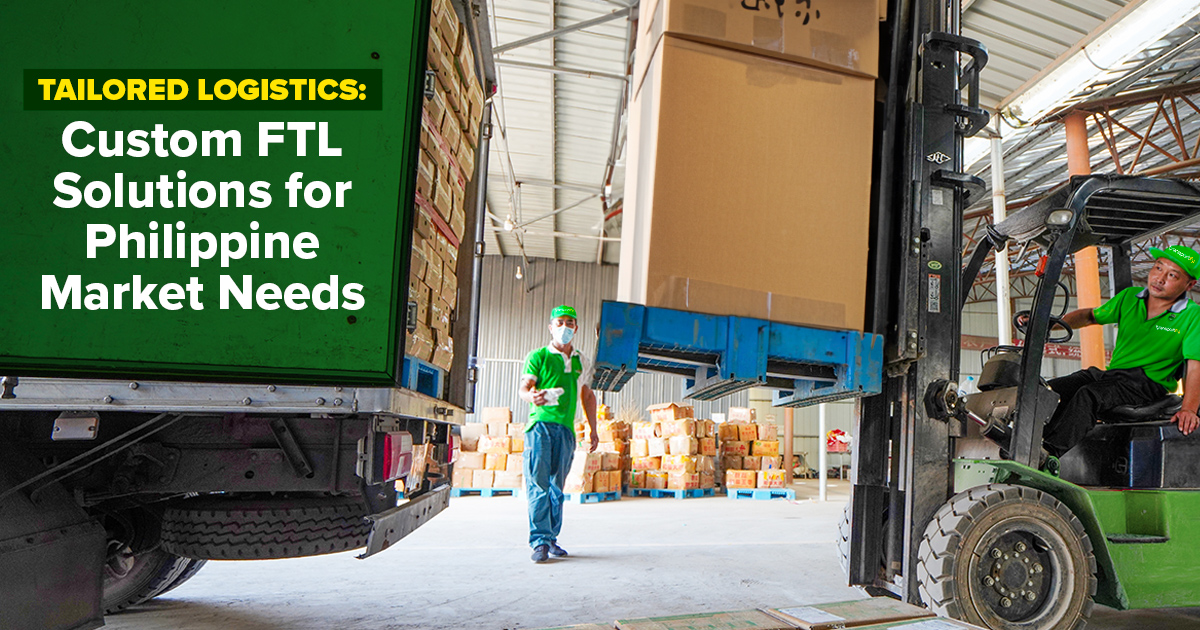
The logistics landscape in the Philippines is witnessing a transformative phase, driven by rapid growth in e-commerce and a dynamic shift in consumer preferences. At the forefront of this evolution is Full Truck Load (FTL) shipping, a crucial component for efficient and reliable logistics operations. Understanding the nuances of FTL in the context of the Philippine market can unlock new potentials for businesses, especially when it comes to managing large shipments and meeting specific market needs.
The Evolution of FTL Shipping in the Philippines
Responding to Market Dynamics
The Philippines Freight and Logistics Market is estimated to grow significantly, reaching USD 25.38 billion by 2028. This growth is attributed to the burgeoning e-commerce sector and an increased focus on digital solutions in logistics. Businesses are now demanding more customized and sustainable FTL solutions, and companies like Transportify are leading this charge with their innovative services.
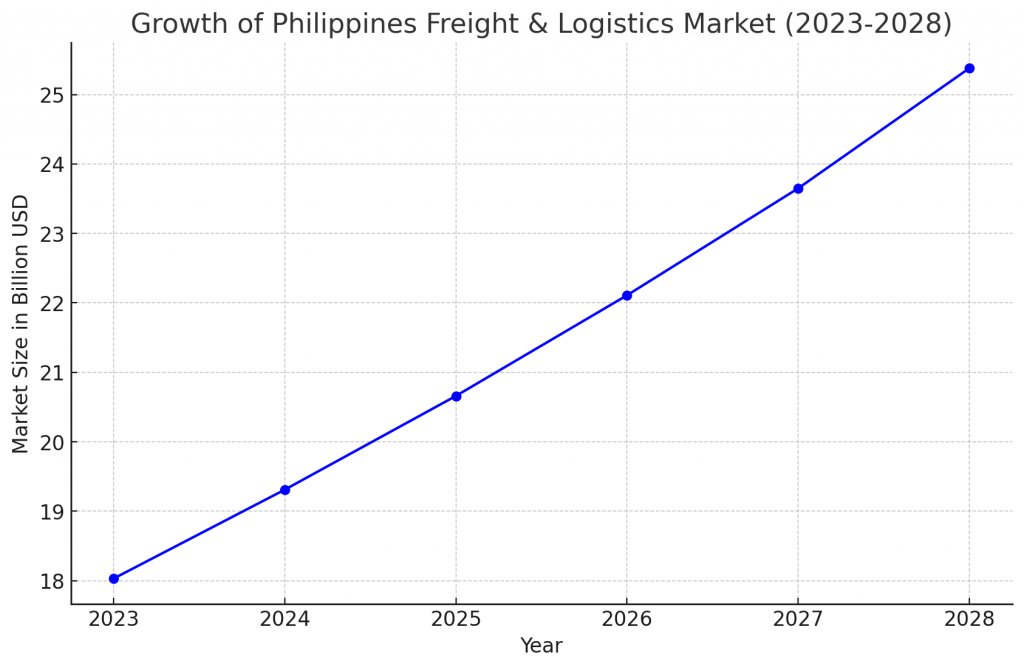
The graph above visualizes the projected growth of the Philippines Freight & Logistics Market from 2023 to 2028. As indicated, the market size is expected to expand significantly, rising from USD 18.03 billion in 2023 to USD 25.38 billion by 2028. This growth trajectory underscores the increasing demand for efficient and tailored logistics solutions in the region, particularly in the realm of Full Truckload (FTL) services.
The need for tailored logistics solutions in the Philippines is underscored by several challenges facing the freight industry:
- Geographical Disruptions: The Philippines frequently experiences typhoons and floods, disrupting the supply chain. The absence of a national bridge network means that sea vessels and ferries, crucial for inter-island goods movement, often cease operations during these disruptions. Roads may also be blocked, leading to high operating costs due to delayed or rerouted shipments.
- High Traffic Congestion: A study by the Asian Development Bank highlights that Metro Manila has a 43% congestion level, with an estimated 98 hours lost to traffic annually. Combined with poor infrastructure, this congestion significantly delays the delivery of merchandise to its final distribution points.
- High Freight Transport Cost: The reliance on sea ferries for inter-island transport increases costs. Additionally, lengthy dwelling times for trucks and vessels, coupled with high labor costs for truck drivers, contribute to elevated transport costs in the Philippines.
- Exponential Rise in Fuel and Oil Prices: Fuel costs, crucial for road freight, have risen sharply, affected by supply-demand dynamics and exchange rates. The implementation of the TRAIN Law in 2018 and subsequent excise tax increases have led to a significant rise in fuel prices for diesel truck drivers, approximately PHP 6.0 per liter in 2020.
- Inconsistent Regulations: The lack of a centralized body to regulate ports leads to inconsistencies in port operations. This results in delays for ships docking or berthing at ports, further complicating logistics and supply chain efficiency.
Given these challenges, tailored logistics solutions are essential for optimizing supply chain processes, reducing operating costs, and improving overall efficiency in the Philippines. Customized logistics strategies can address specific issues such as geographical disruptions and traffic congestion by implementing route optimization, flexible scheduling, and utilizing alternative transportation modes. Moreover, leveraging technology for real-time tracking and efficient logistics management can mitigate the impacts of high freight costs and inconsistent regulations.
E-commerce and Its Impact
The e-commerce has reshaped the logistics industry. More consumers are turning to online shopping, creating a substantial demand for efficient and reliable delivery services. This shift has necessitated an evolution in FTL shipping methods, focusing on rapid, technology-driven, and customer-centric solutions.
Transportify’s Innovative Approach
Transportify, a pioneer in logistic solutions, has adapted to these changing market dynamics by offering state-of-the-art FTL services. Their approach encompasses a range of tailored services, including same-day delivery options, ensuring that they cater to the diverse needs of their customers.
Leveraging Technology in FTL Shipping
Digital Integration and Flexibility
Transportify’s sophisticated online delivery app sets them apart in the logistics sector, offering an easy and efficient booking process, real-time tracking, and enhanced customer support. This digital transformation simplifies logistics management, allowing for a more streamlined and transparent process.
API and SDK Integration
Understanding the critical role of technology, Transportify offers API and SDK options for seamless integration with existing systems. This enables businesses to customize and control their logistics operations, integrating Transportify’s features into their own ecosystem.
SEE ALSO
- Cargo Truck FTL Service (Full Truckload) | Transportify
- Emerging Trends in FTL Shipping for Modern Business Logistics
- Exploring FTL Logistics and Courier Services: A Comprehensive Guide
Tailoring FTL Solutions to Business Needs
Scope Beyond Transportation
Logistics management involves more than just transporting goods; it includes the entire journey from production to final consumption. This process includes material sourcing, order fulfillment, warehousing, demand forecasting, and supply chain management. Transportify’s comprehensive FTL services support each of these aspects, ensuring a seamless logistics experience.
Preparing Goods for FTL Transportation
- Packaging and Labeling
- Secure Packaging: Ensure your goods are securely packaged to prevent damage during transit. Use durable materials and protective padding as needed.
- Accurate Labeling: Clearly label each item with relevant information, such as content, handling instructions, and destination details.
- Documentation
- Shipping Documents: Prepare all necessary documents, including a Bill of Lading, commercial invoice, and any required permits or certifications.
- Inventory List: Maintain a detailed inventory list of all items being shipped for easy tracking and verification.
- Load Planning
- Weight Distribution: Balance the load to avoid shifting during transport. This is crucial for safety and the integrity of your goods.
- Space Utilization: Maximize the use of space in the truck without overloading.
Choosing the Right Vehicle Type for FTL Shipment
Cargo Nature and Size
Determine the type of goods (e.g., perishable, fragile, hazardous) and their volume to select an appropriate vehicle.
Weight and Capacity
Match the weight and volume of your shipment to the vehicle’s capacity to ensure efficient and safe transportation. The flexibility of FTL shipping is evident in Transportify’s capability to handle a wide range of industries, from manufacturing to retail. With trucks capable of transporting up to 28 tons and providing space up to 40 feet in length, they can cater to large-scale shipments and heavy goods. This capacity is particularly advantageous for industries requiring the movement of large quantities or oversized items, reinforcing Transportify’s commitment to versatile logistic solutions.
For more details about Transportify vehicles, see the table below:
Vehicle Type Dimensions/
Weight LimitsBase Price
(Metro Manila)Base Price
(Outside Metro Manila)Base Price
(Visayas/Mindanao)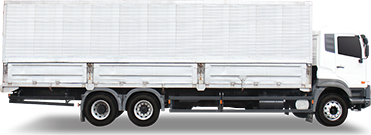 Wing Van
Wing Van 32 to 40 x 7.8 x 7.8 ft
12000kg to 28000kg7000 PHP 6500 PHP 6500 PHP 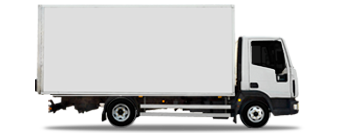 6w Fwd Truck
6w Fwd Truck18 x 6 x 7 ft
7000kg4850 PHP 4850 PHP 4850 PHP 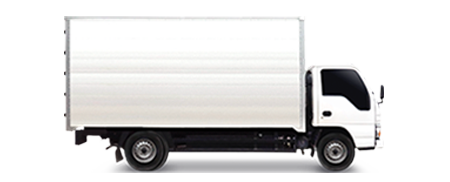 Closed Van
Closed Van10 to 14 x 6 x 6 ft
2000kg to 5000kg1600 PHP 1450 PHP 1450 PHP  Open Truck
Open Truck10 to 21 x 6 ft x open
2000kg and 7000kg2300 PHP 1950 PHP 1950 PHP  L300/Van
L300/Van8 x 4.5 x 4.5 ft
1000kg415 PHP 374 PHP 335 PHP  Small Pickup
Small Pickup5 x 5 ft x open
1000kg418 PHP 338 PHP 325 PHP  Light Van
Light Van5.5 x 3.8 x 3.8 ft
600kg375 PHP 292 PHP 275 PHP  MPV/SUV
MPV/SUV5 x 3.2 x 2.8 ft
200kg240 PHP 210 PHP 160 PHP  Sedan
Sedan3.5 x 2 x 2.5 ft
200kg220 PHP 190 PHP 140 PHP Special Requirements
Consider any special requirements such as refrigeration for perishables or additional security for high-value items.
Flexibility of FTL Services for Special Requirements
Adapting to Unique Shipping Needs
Full Truckload (FTL) services are renowned for their flexibility in accommodating special requirements. Transportify’s FTL services, for instance, are designed to cater to a wide range of unique shipping needs. Whether it’s temperature-sensitive goods, oversized items, or high-value cargo, their FTL solutions can be tailored to meet these specific requirements.
Customization Options
Transportify offers various customization options for FTL shipments, including specialized equipment for fragile items, refrigeration for perishable goods, and secure transport for high-value products. This adaptability ensures that whatever the special requirements of your shipment, they can be effectively addressed.
FTL vs. LTL: Strategic Decision-Making
In logistics, the choice between Full Truckload (FTL) and Less Than Truckload (LTL) can significantly impact a business’s operations. FTL involves the use of the entire truck for a single shipment, offering exclusivity and efficiency, especially for large shipments. On the other hand, LTL is suitable for smaller cargo, sharing space with other shipments. Transportify provides detailed insights into these services, helping businesses make informed decisions based on their specific needs.
Choosing the Right Vehicle for FTL Shipments
Assessing Cargo Needs
Choosing the right vehicle for your FTL shipment depends on various factors like the size, weight, and nature of your cargo. Transportify offers a range of vehicle options, from smaller vans for light deliveries to larger trucks for substantial cargo, ensuring that you can select the most appropriate vehicle for your shipment.
Consulting with Logistics Experts
It’s advisable to consult with Transportify’s logistics experts, who can provide guidance based on your specific requirements. Their knowledge and experience can help you make an informed decision, ensuring that your goods are transported in the most suitable vehicle.
Key Factors for Cross-Country FTL Shipping
Route Planning and Timelines
For cross-country FTL shipping, route planning is essential to determine the most efficient path, considering factors like distance, road conditions, and potential bottlenecks. It’s also crucial to establish realistic timelines for pickup and delivery, accounting for variables such as weather and traffic conditions.
Legal and Regulatory Compliance
Compliance with legal and regulatory requirements across different jurisdictions is critical. This includes adhering to transportation laws, securing necessary permits, and ensuring that your cargo meets all regulations, especially for hazardous materials or international shipments.
Security and Tracking
Security measures and real-time tracking are vital for cross-country shipments. Transportify’s FTL services include features like GPS tracking and secure transportation protocols, providing constant visibility and ensuring the safety of your shipment throughout its journey.
Advantages of Choosing FTL with Transportify
Selecting FTL shipping with Transportify offers multiple benefits:
- Cost-Effectiveness: FTL is more economical, particularly for bulk cargo, as it utilizes the entire truck space, reducing transport costs.
- Time Efficiency: FTL ensures swifter delivery, crucial for businesses where timely delivery is paramount.
- Reliability: The risk of handling damage or loss is significantly reduced with dedicated trucks, ensuring the safety of shipments.
Additionally, Transportify’s FTL service includes door-to-door delivery, further enhancing its efficiency and reliability.
 | or |




 INSTANT QUOTE
INSTANT QUOTE

 Chat
Chat